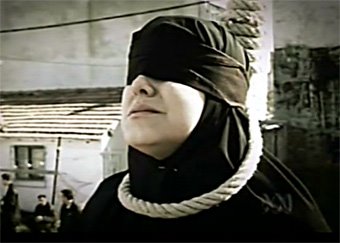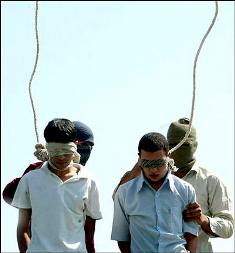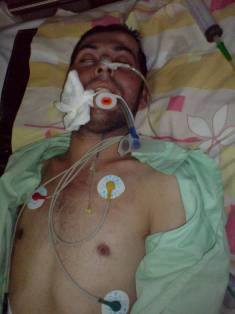
27 August 2008
Reporters Without Borders today called for the case to be dropped against journalist Yosef Azizi Banitruf, sentenced to five years in jail after he exposed excessive use of force against demonstrators from the Arab community who clashed with security forces in Khuzestan in south-west Iran.
The trial of Azizi Banitrouf, a member of Iran’s Arab minority, was held over almost two years. The Tehran revolutionary court handed down its verdict against him on 20 August for “acting against national security”, “incitement to rebellion” and “relations with foreign officials”. He is free while awaiting an appeal.
The freelance journalist was arrested on 25 April 2005. His home was searched and working papers seized. He was released on bail to await trial on 28 June 2005.
“President Mahmoud Ahmadinejad is systematically exploiting the judicial system to crack down on journalists from the minority communities, for whom they often act as spokesperson,” the worldwide press freedom organisation said.
“Six of the seven journalists currently in prison in the country are of Kurdish or Arab origin. This outrageous gagging policy should be condemned by all those committed to free expression for Iranians,” it added.
Interviews given by Aziz Banitruf to foreign media and interviews he carried out himself with officials in the Arab world were produced in court as evidence against him.
He worked for 12 years for the daily Hamshari, owned by the mayor of Tehran, but was sacked when Ahmadinejad was elected the capital’s mayor in 2003 and conservatives were put in charge of the paper. He now works for several national publications and continues to contribute to foreign media. He is also a member of the board of the Iranian Writers’ Association.
The Tehran revolutionary court in June 2008 imposed an 11-year jail sentence on Iranian journalist of Kurdish origin, Mohammad Sadegh Kabovand, for “acting against national security” after he founded an organisation to defend human rights in Kurdistan. He was arrested in July 2007 and has since been imprisoned in Evin jail, Tehran.
Said Matinpour of the weekly Yarpagh, one of the leading Azeri community newspapers, was in June 2008 given an eight-year suspended sentence, also by a revolutionary court in the capital, for “having dealings with foreigners” and for “publicity against the regime”.
In yet another case, a journalist working for the official news agency ISNA, Mahboubeh Karami, was released on 26 August 2008 after paying bail of one hundred million toumens (80,000 euros) following her arrest on 13 June this year after criticising police brutality against demonstrators on a bus in Tehran. She is facing charges of “damaging national security” and “publicity against the regime”.
Reporters Without Borders defends imprisoned journalists and press freedom throughout the world. It has nine national sections (Austria, Belgium, Canada, France, Germany, Italy, Spain, Sweden and Switzerland). It has representatives in Bangkok, London, New York, Tokyo and Washington. And it has more than 120 correspondents worldwide.




























































